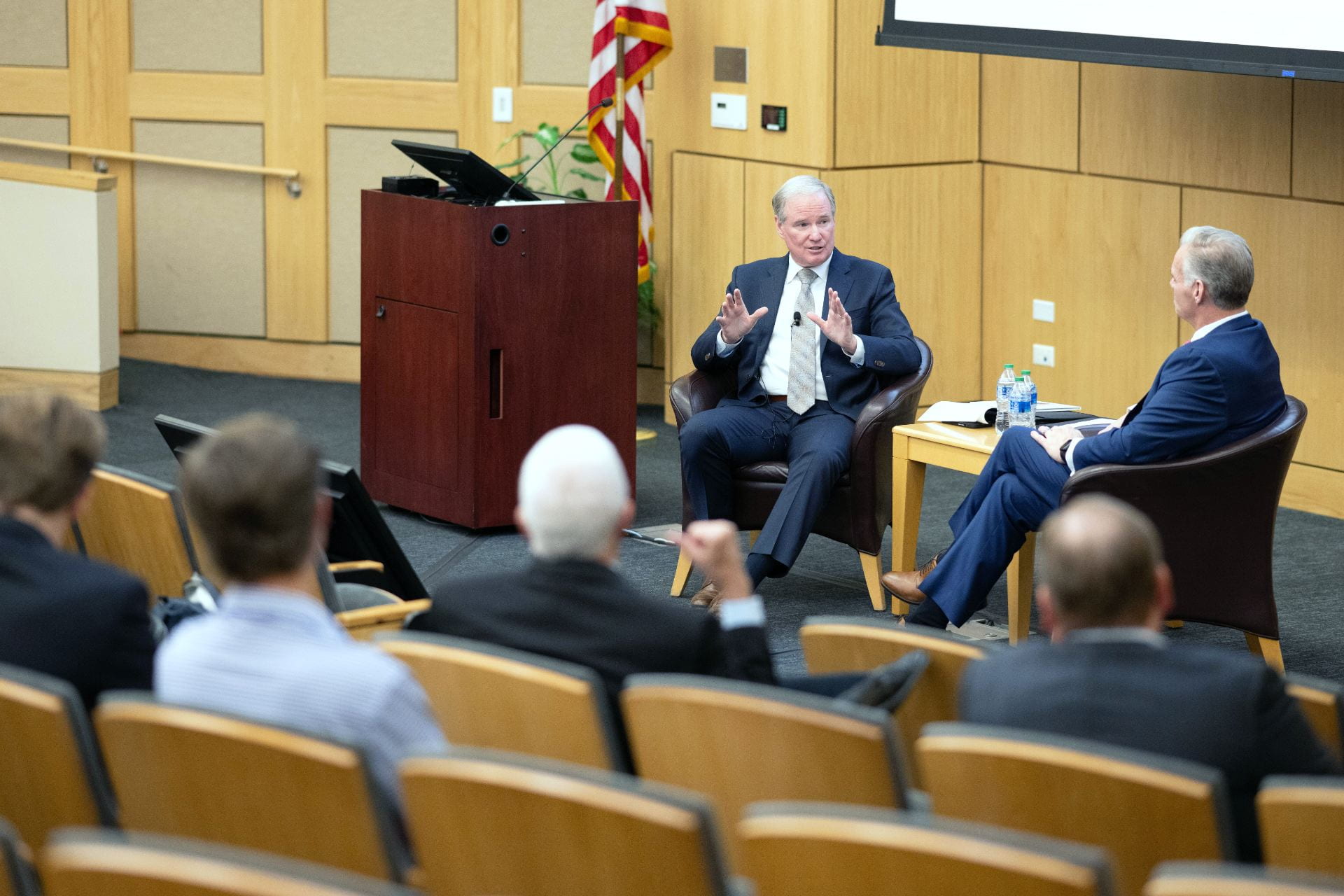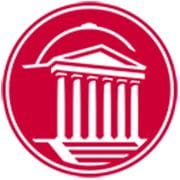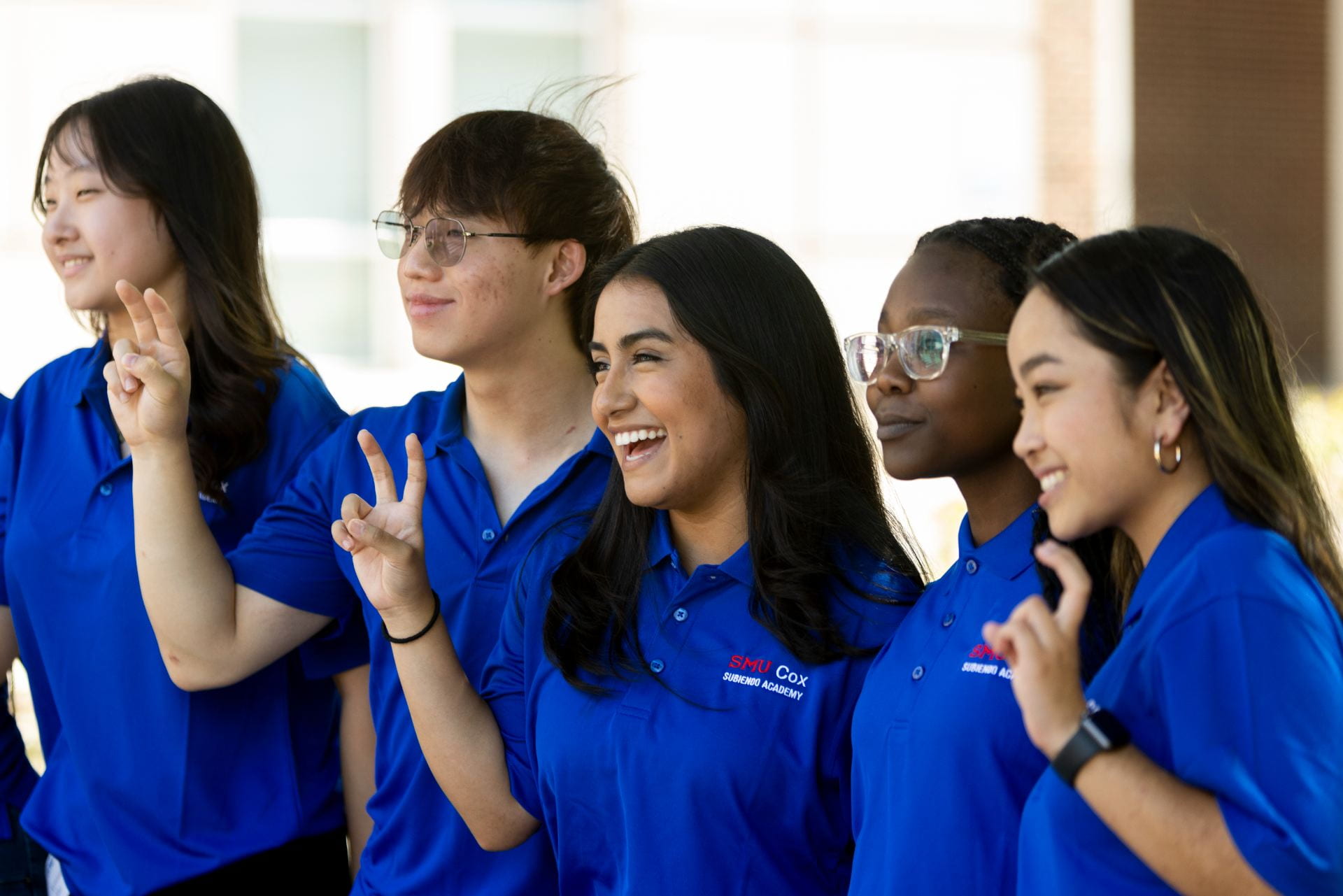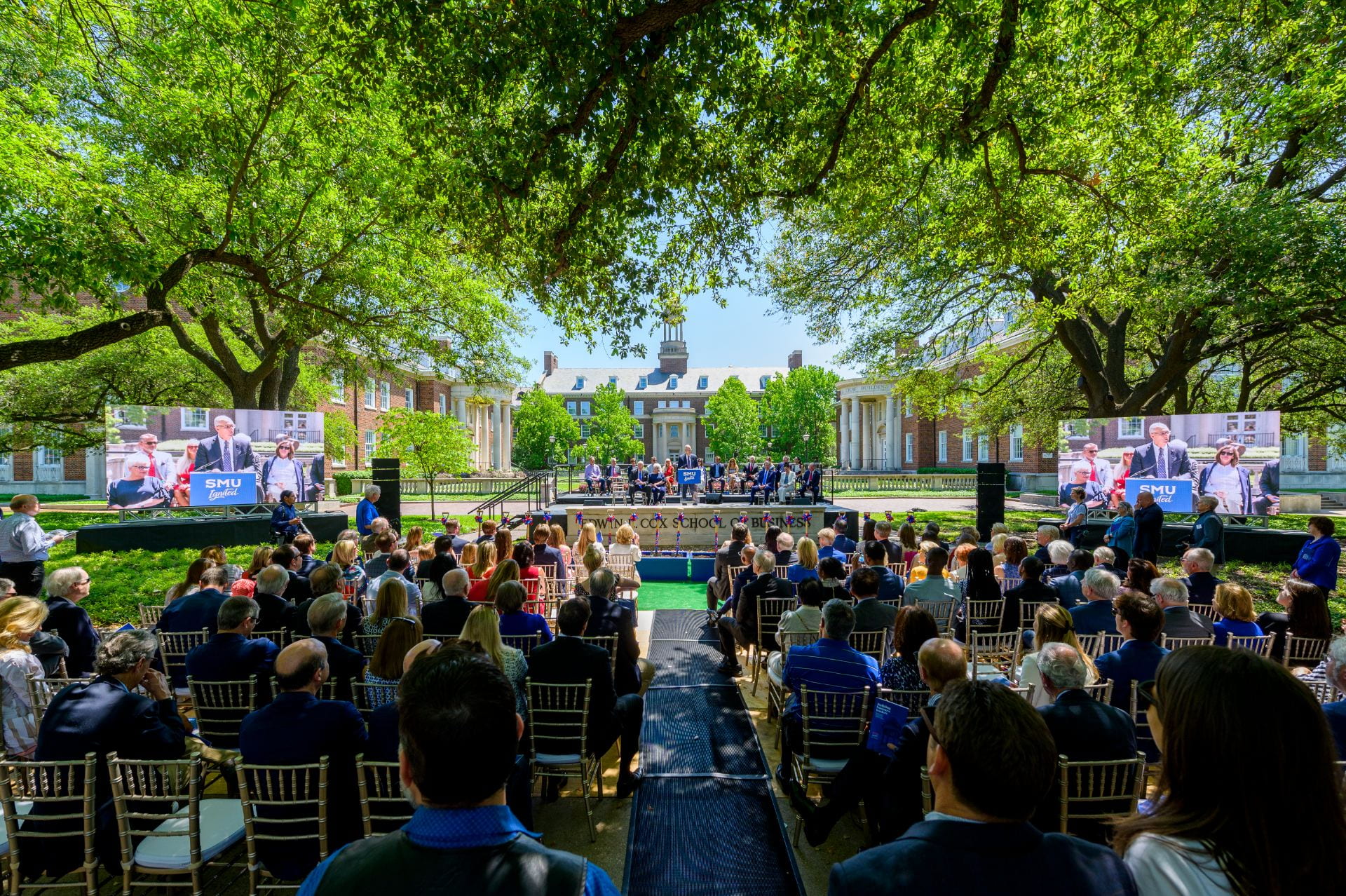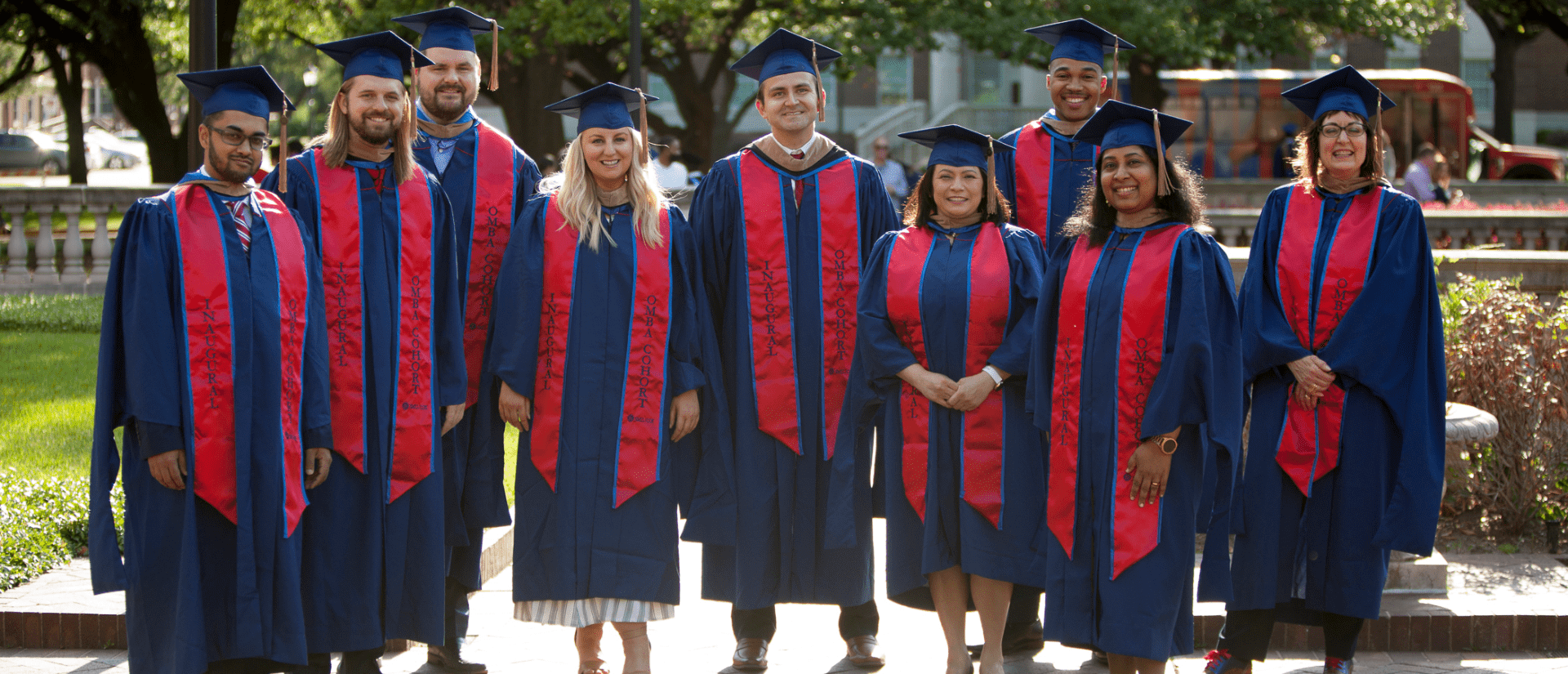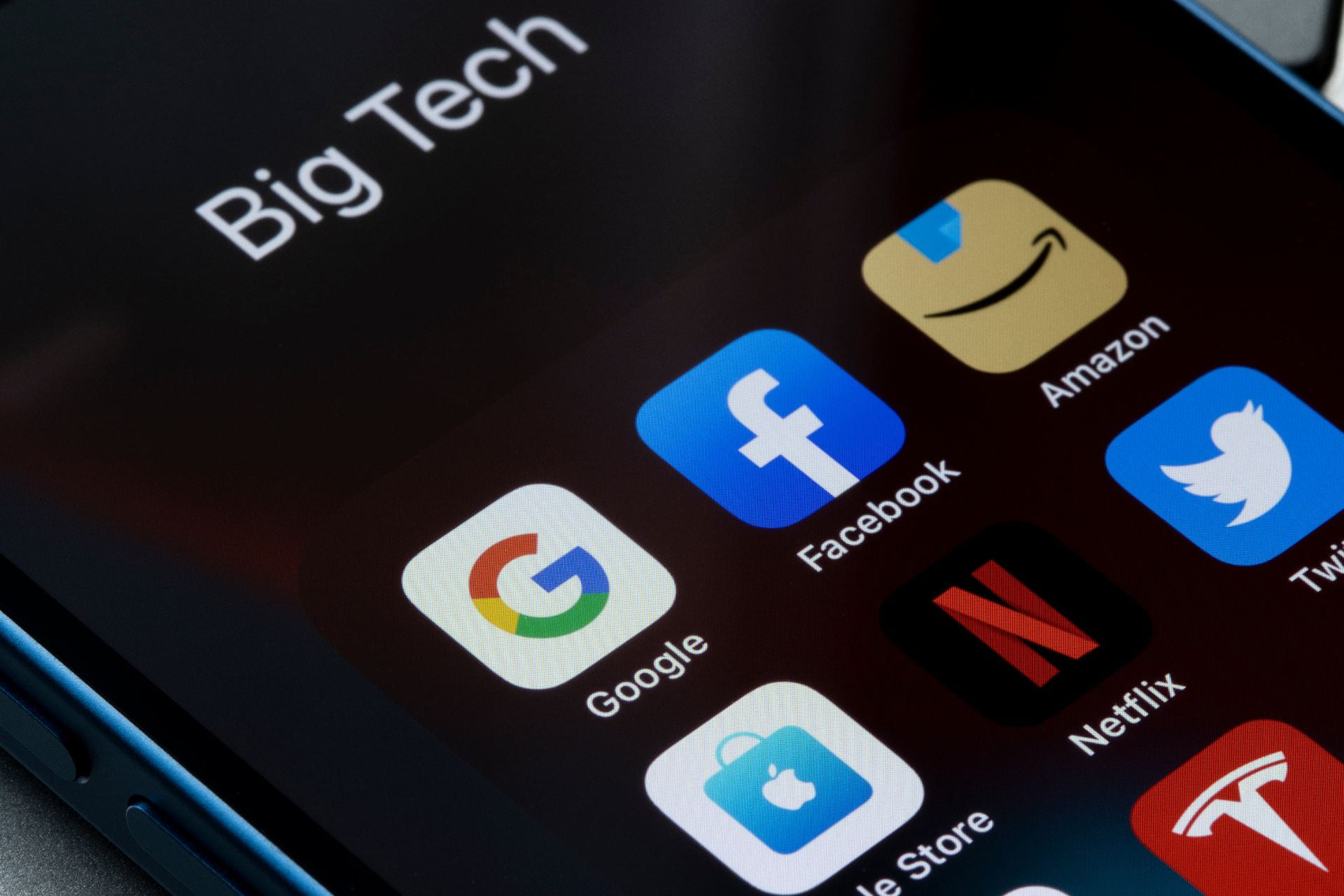Shane Goodwin subscribes to an axiom that holds that leadership is the planet’s most-observed yet least-understood phenomenon. When Goodwin, associate dean of executive education and graduate programs and a professor of practice, considers why that might be, he returns to a fundamental glitch in our perception of leaders.
We tend to think of leaders as defined by a title or position: your members of Congress, your C-suite execs, your military leaders and so on. But there’s a difference between the power people command by virtue of their jobs and the trust they earn through true leadership. Some people in authority are not, to Goodwin’s thinking, good leaders. (Your boss isn’t a leader simply because of having the power to fire you, for instance.) Goodwin believes the confusion comes down to the verb in the traditional definition of leaders, which holds that a leader influences others to accomplish a goal.
“I’ve always rejected that,” he says. “The influence can be done with positive or negative stimuli, and I don’t think leadership is that. In my definition, my i-word was never ‘influence.’ It was ‘inspire.’ Because you have to inspire people to a mutually shared goal.”
The Leadership Speaker Series is part of a fundamental mission by Cox to ensure its graduates enter the workplace more prepared to lead—and to democratize the information and to spur action by inviting in the wider community.
The current Cox School curriculum was built on three pillars: business analytics, experiential learning and leadership. It was designed in part based on feedback from the School’s corporate partners and recruiters who view the less-tangible ability to lead as a critical quality in current and future hires. In that spirit, Goodwin worked with the Cox School’s director of corporate engagement and strategic partnerships to create the new Leaders on Leadership: Fireside Chat Speaker Series for the SMU Cox community. The series is free to attend and open to the public.
In September, the speaker series kicked off with a conversation with Craig Kessler, the chief operating officer of the PGA of America. Kessler worked in private equity after earning his MBA from Harvard, then was the top executive at Topgolf for five years before the PGA tapped him.
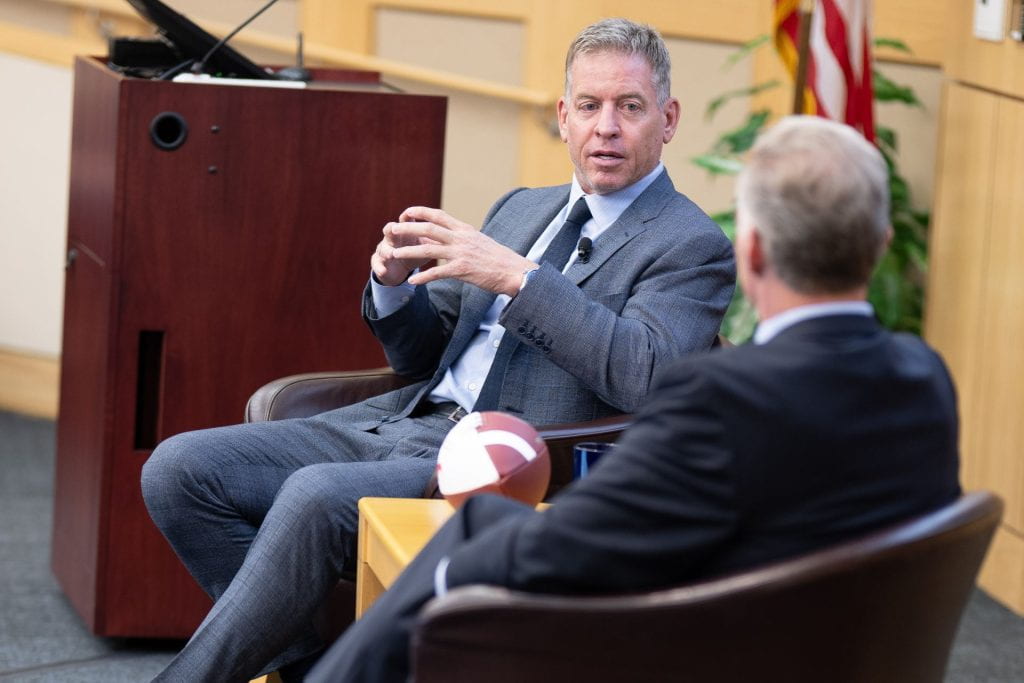
The eclectic lineup continued with Troy Aikman, the Hall of Fame quarterback for the Dallas Cowboys, currently a noted TV sports commentator and now the founder of EIGHT Beer; and Patrick Walsh, the retired four-star admiral who began his Navy career as a top aviator and rose to command the U.S. Pacific Fleet from 2009 to 2012. He is the current president of Cristo Rey Dallas College Prep. Celanese Corporation CEO and President Lori Ryerkerk, George W. Bush Presidential Center CEO and President Ken Hersh, SMU President R. Gerald Turner and Trinity Industries CEO Jean Savage will round out the first year’s slate of speakers in the spring semester.
Through the series, Goodwin aims to show students and others in the Cox community how differently leadership can manifest in different settings—and to tease out similarities in leadership insights from people in an array of fields.
Besides having won acclaim on the field and on TV, Aikman is also the father of two daughters, one of them an SMU Cox student. Being a parent is arguably an even more important leadership role. Aikman told Goodwin he uses the leadership advice he learned long ago from former Cowboys Head Coach Jimmy Johnson. “(His) approach as a head coach was very effective. Paraphrasing Johann Wolfgang von Goethe, he would say, ‘Treat a person as they are and they will remain. Treat people as they can be, and they will become.’ It’s amazing and it’s true. You experience that not only in athletics or in business, but you experience that in relationships,” Aikman said.
Leadership, that elusive goal, often begins with conversations about navigating difficult moments, and perhaps steering into painful choices. In his talk with Kessler, Goodwin asked how he managed to steer his previous company, Topgolf, through the pandemic. “We furloughed 25,000 people in 24 hours,” Kessler said.
Faced with the grim job of cutting staff, Kessler reflected on his days at Harvard Business School. A professor there had instilled in him a core principle for guiding a large team. Everyone harbors insecurities— about their body, about their status, about their income, about something. A leader’s job, Kessler realized, is to figure out what that insecurity is and help put it to rest. “Figure out how to make them feel psychologically safe,” he told Goodwin and the Speaker Series audience. “When I use that mindset, I think it makes a big difference.”
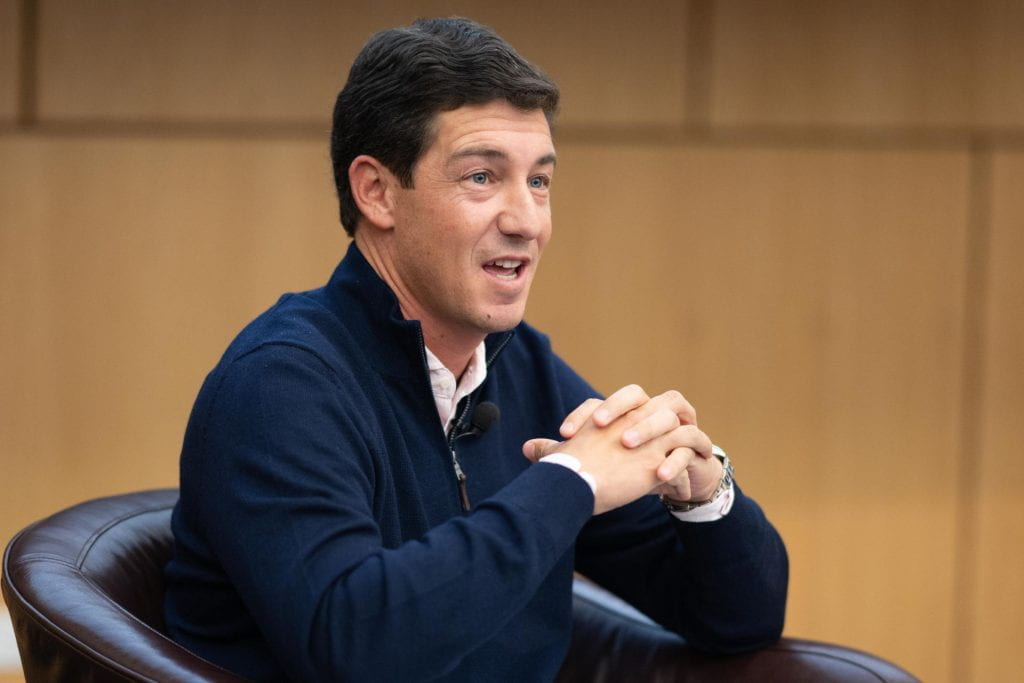
So, when Topgolf made those cuts and thousands of people were logging into Zoom to get the dreadful news, Kessler had the company post a slide that showed a brain and a heart. “We said, ‘What we’re about to do comes from both these places,’” Kessler said. “‘We have to protect the ability to keep this business going. But we want to do it in a way that when COVID ends—and we know it will end—you still trust us and you’re willing to come back to work.’” Topgolf indeed survived. And the next year, on the other side of the worst of the pandemic, Forbes included Topgolf on the magazine’s 2021 America’s Top Large Employers list.
Just as Kessler thought back to his Harvard days to guide his toughest choices, so too does Goodwin expect Cox students to draw upon their schooling when called upon to lead.
“I do believe people can look at the attributes and skills of the leader and develop themselves accordingly,” he says. “We see some great students who are very deliberate about what they want to improve on. And they go and do it.”
Building leaders is, in so many ways, a tricky endeavor. True leadership shows itself most reliably in difficult times, and in difficult times people look first to whomever is in charge.
Companies today see it as a standard requirement that business school graduates arrive with relevant professional experience and be fluent in basic accounting, finance principles and reading a profit and loss statement. Increasingly, those early or mid- career hires are also expected to be able to lead through change or even a crisis. According to Walsh, “To flex the organization and let people know we’re big enough to do something a little different than what we have done traditionally is the ability to be a leader in an unscripted environment. Adaptability is a huge (leadership) lesson.”
Where students can bring value, then, is in excelling at what long were known as soft skills—communicating, broadly. A person who knows how to connect with others has a head start on becoming a person who can guide, direct and motivate people, teams and organizations. Organizations also want new hires with talents in messy problems. Can you bounce back from failure? Can you discern possible solutions from incomplete data? How curious are you?
“We hear consistently from the hiring teams of our corporate partners about the ability to handle ambiguity,” Goodwin says. “Someone who can really aspire into a leadership position—ultimately into a very senior role— isn’t likely to be there because they’re the best at doing debits and credits.”
Just as Goodwin sees leadership as deriving from a source other than a title, however, he also sees it as a continuum. Everyone, from the freshest intern to the chairman of the board, has opportunities to lead, as well as to follow. Organizations trying to identify effective leaders thus must account for the different leadership styles people bring to bear. The person picked for a promotion may be seen as leadership material. But if that person is merely managing up, while not in reality inspiring his team, that’s a person who is likely to be a leader in title only.
Strong leaders, in Goodwin’s read, possess intellectual humility that enables them to search for solutions when they encounter thorny problems—and to ask others for help. The very strongest leaders build the sorts of empathetic personal relationships that make it easy for others to pitch in and solve those problems. They work before there are emergencies to develop themselves and to help others grow.
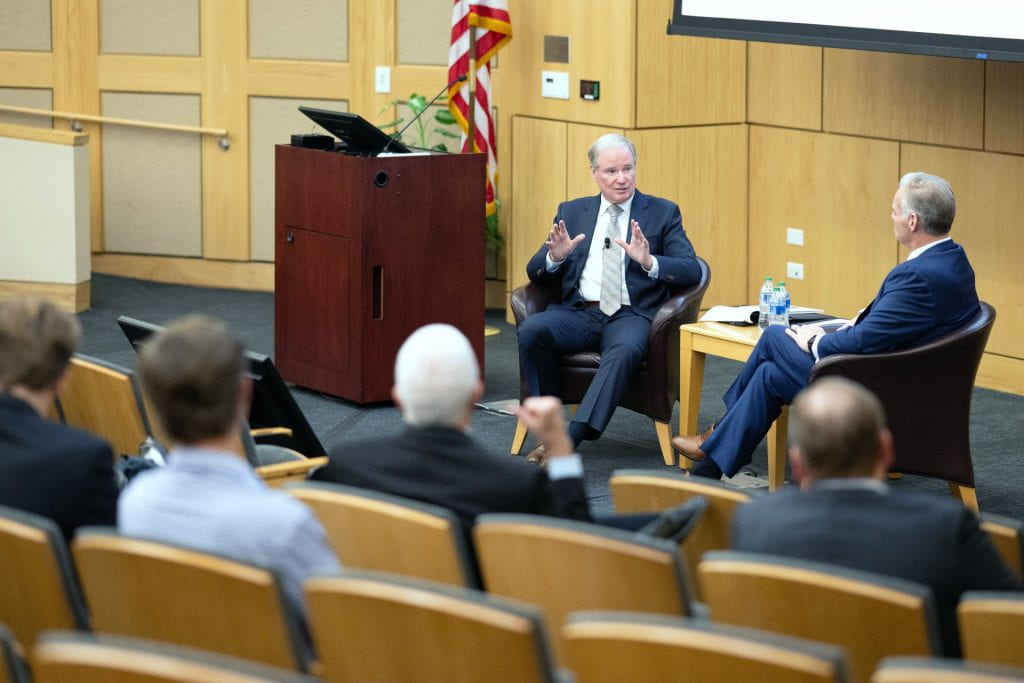
Walsh echoed that sentiment during his discussion with Goodwin. “Complacency, whether we’re talking about military operations or we’re talking about a growth plan for business, can really undermine the outcomes you’re trying to achieve. No one does that intentionally. What happens is it just gets harder and harder. The challenge for leaders is to find another way to describe in different words what they told team members yesterday who didn’t get it. Otherwise, they would have done something different today,” he explained.
The source of our ability to inspire others can feel elusive. Not everyone, at their current phase of their career, can point to $1.5 billion in annual revenue, as Kessler can at the PGA; or a uniform plated with military awards and medals, as Walsh displays in his official photos; or the three Super Bowl rings that give Aikman’s hands that certain je ne sais quoi. If you’re starting from scratch and want to lead, starting can be daunting.
Kessler offered a suggestion in the Q&A after his Speaker Series event. An audience member asked him: What should a person do in the first month of stepping into a new leadership role? Kessler said everyone’s situation will be different, but then settled on a simple first priority.
“Build trust,” he told the audience. “The tactics matter a lot. If I have a choice between sitting across from you to build trust or taking you on a walk outside, where we’re shoulder to shoulder? We’re gonna go for a walk.”
LEADERS ON LEADERSHIP
In Fall 2023, SMU Cox School of Business launched its Leaders on Leadership Series, which will run throughout the school year and is free to attend and open to the public.
Leaders from all walks of life (military, education, business) will visit SMU Cox and partake in fireside chats moderated by Associate Dean of Executive Education and Graduate Programs Shane Goodwin.
This series aims to highlight what qualities many leaders share, as well as unique inspiration and paths to leadership. In this feature, we emphasize these qualities and uncover the differentiators between people who pass on leadership opportunities and those who seize the opportunity with gusto—and how SMU Cox, as an institution, can teach and inspire such qualities in its students. What are some of the defining moments or critical decisions these leaders have faced? How do they navigate uncertainty/leadership ethics? How has their adaptability or leadership style changed over the years?
Leaders on Leadership: Fireside Chat Speaker Series Spring 2024 Speakers:
Wednesday, Jan. 17: Lori Ryerkerk, CEO of Celanese
Wednesday, Jan. 24: Ken Hersh, President and CEO of the George W. Bush Presidential Center
Thursday, Feb. 15: SMU President R. Gerald Turner
Wednesday, March 20: Jean Savage, CEO of Trinity Industries
Details:
Time: 5-7 p.m.
Program: 5-6 p.m. (no admission fee)
Complimentary Networking Reception: 6-7 p.m.
Location: Crum Auditorium, SMU Cox Collins Executive Education Center, 3150 Binkley Ave., Dallas
All events are free and open to the public, but registration is required.

